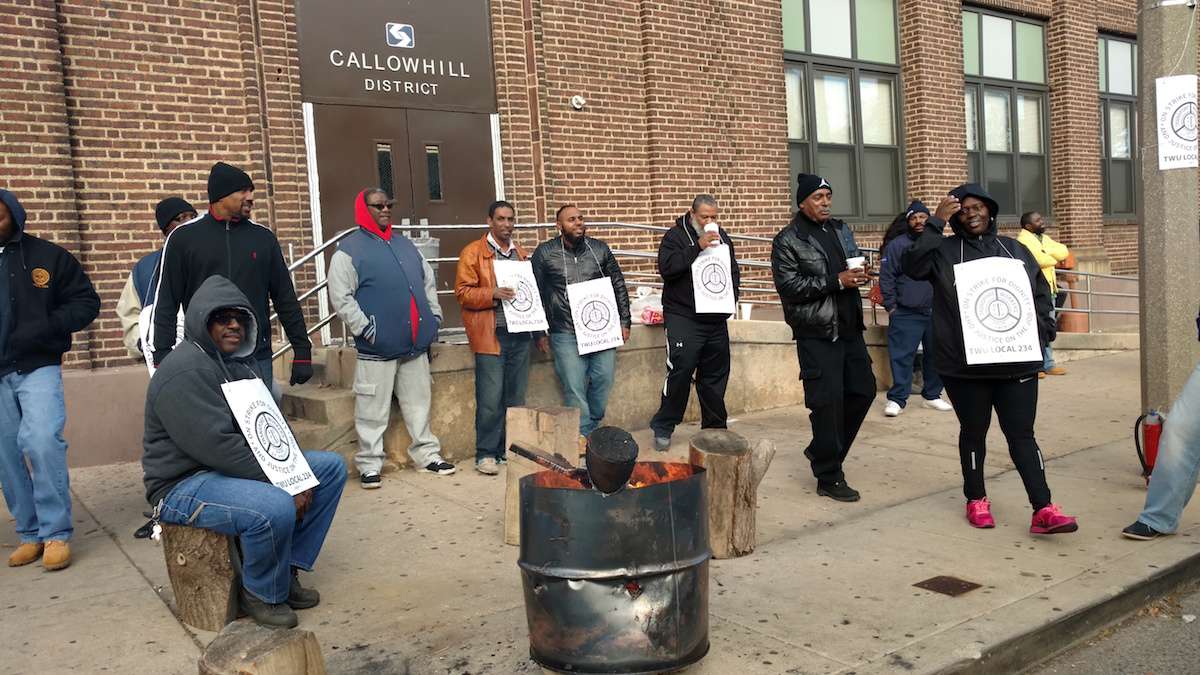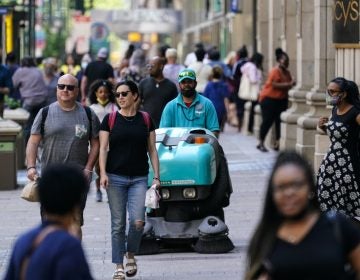Union overwhelmingly OKs SEPTA pact

Striking SEPTA mechanics and bus operators picket outside the Callowhill Depot early this month. (Katie Colaneri/WHYY)
Philadelphia’s transit nightmare is over. Members of Transport Workers Union Local 234 overwhelmingly approved the agreement that ended the six-day SEPTA strike earlier this month.
Union members voted on the contract by secret ballot at workplace locations Friday, the day after the SEPTA board approved the deal, pending union ratification.
Approval of the deal means SEPTA city transit riders won’t have to worry about a work stoppage until 2021 at the earliest.
Union leader Willie Brown recommended ratifying the agreement, but an opposing faction within the union wanted to reject it and return to the bargaining table.
Workers accepted a trade-off in the five-year deal, paying more for health care, but getting better pensions and higher wages.
The wage hikes for the 4,700 workers covered by the agreement are backloaded, with the largest increases coming in the last two years of the contract.
Employee contributions for health care will increase from 1 percent of wages to 2.5 percent by December 2019.
The wage and pension benefits in the deal are expected to cost SEPTA $146 million over the next five years. SEPTA officials have said there’s enough money in the authority’s 10-year budget plan to fund those expenses without fare hikes or additional public funds.
SEPTA hasn’t revealed the cost of all the new contract’s provisions.
The strike ended just two days before Election Day with a tentative deal struck in the wee hours of Nov. 7.
SEPTA had sought a court injunction forcing the employees back to work, and a union newsletter suggests that might have encouraged union leaders to settle the walkout.
“Had SEPTA succeeded in obtaining an injunction just seven days into the strike, we could have lost the right to strike now and forever, without the option of binding arbitration, like police and firemen have,” stated the newsletter.
WHYY is your source for fact-based, in-depth journalism and information. As a nonprofit organization, we rely on financial support from readers like you. Please give today.




